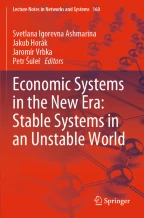
The development of globalization processes in the world economy and the increasing interdependence of business entities in different countries contribute to the growth of international trade scale, which, in turn, leads to an increase in the number of intermediary operations. The purpose of this article is to identify conclusion and execution features of intermediary agreements in international trade under conditions of the globalized world economy. The main method used in the study is complex analysis, since the legal regulation of intermediary agreements in international trade cannot be considered in isolation from the economic content of these relations. The wide use of intermediary agreements in international trade is determined by a number of undeniable advantages. And their regulatory design makes them a tool for expanding the scope of activities of many economic entities by attracting the intermediaries’ services. The materials of this research work may be of interest to both practicing lawyers and economists, and can also be used for further theoretical research on the problems of legal regulation of intermediary contracts.
This is a preview of subscription content, log in via an institution to check access.